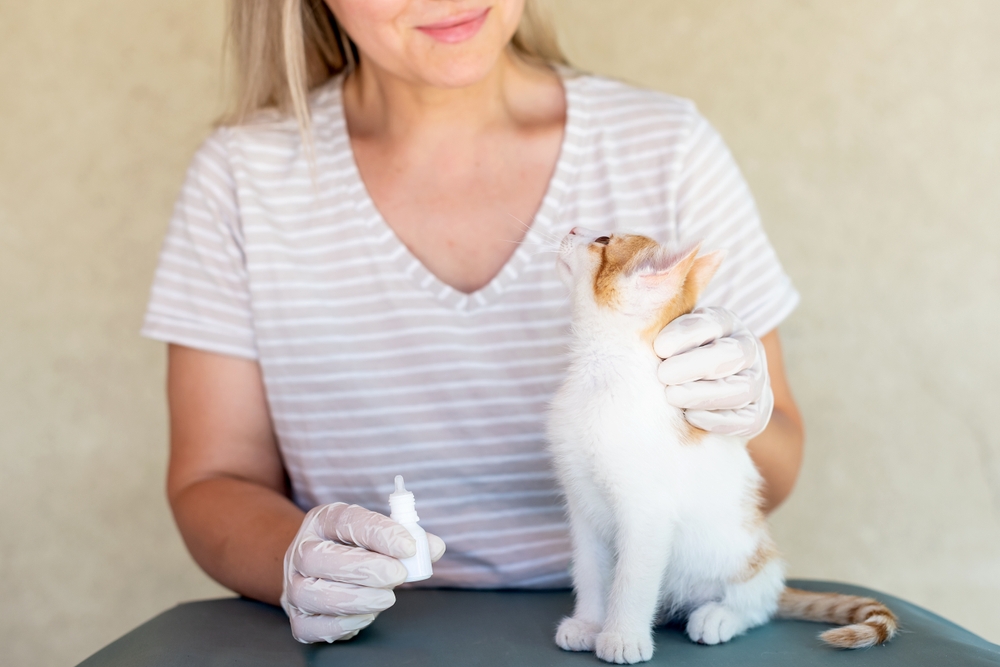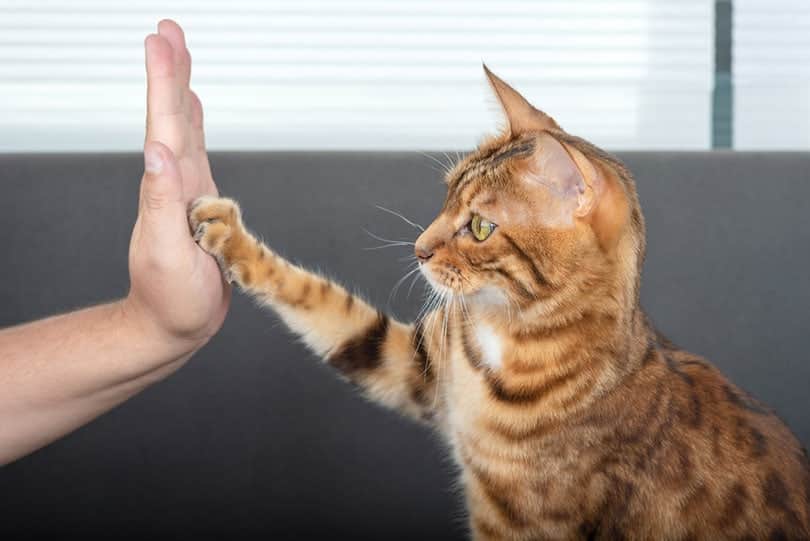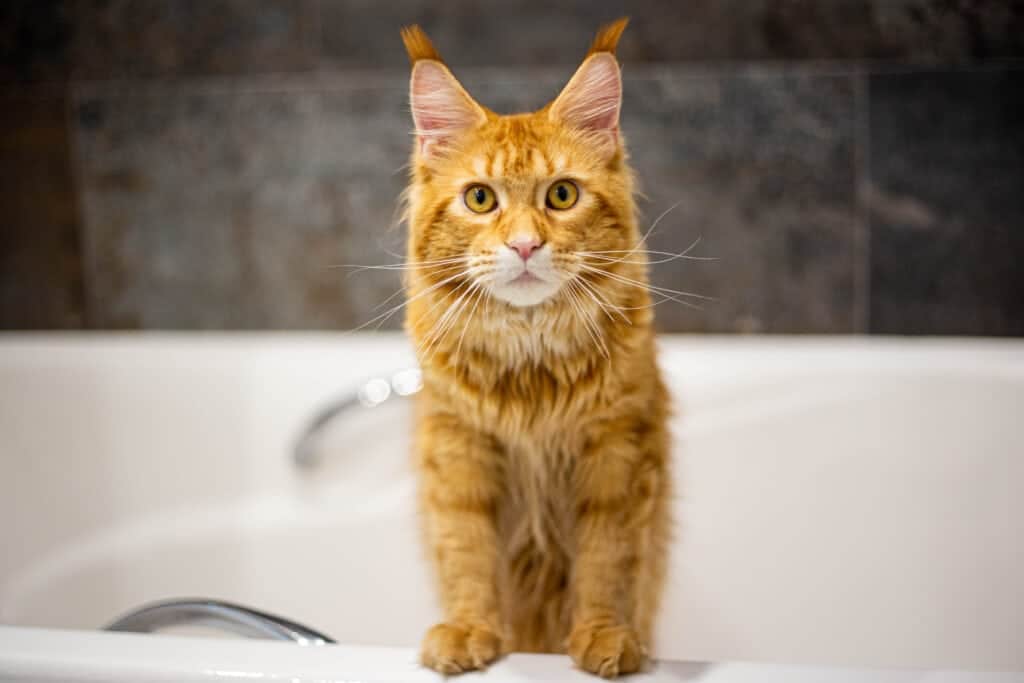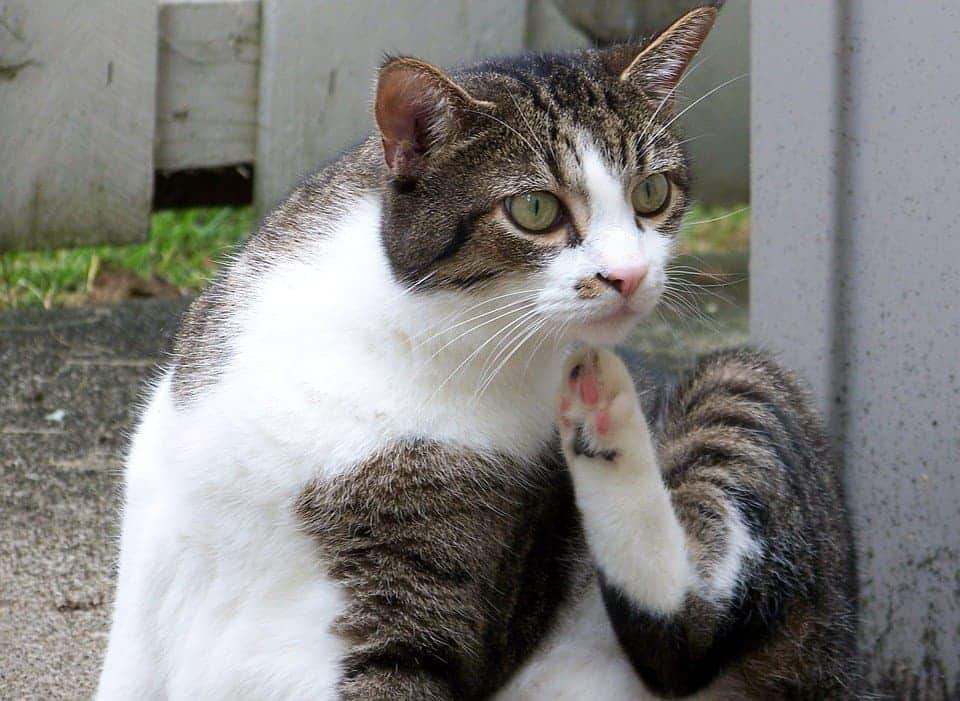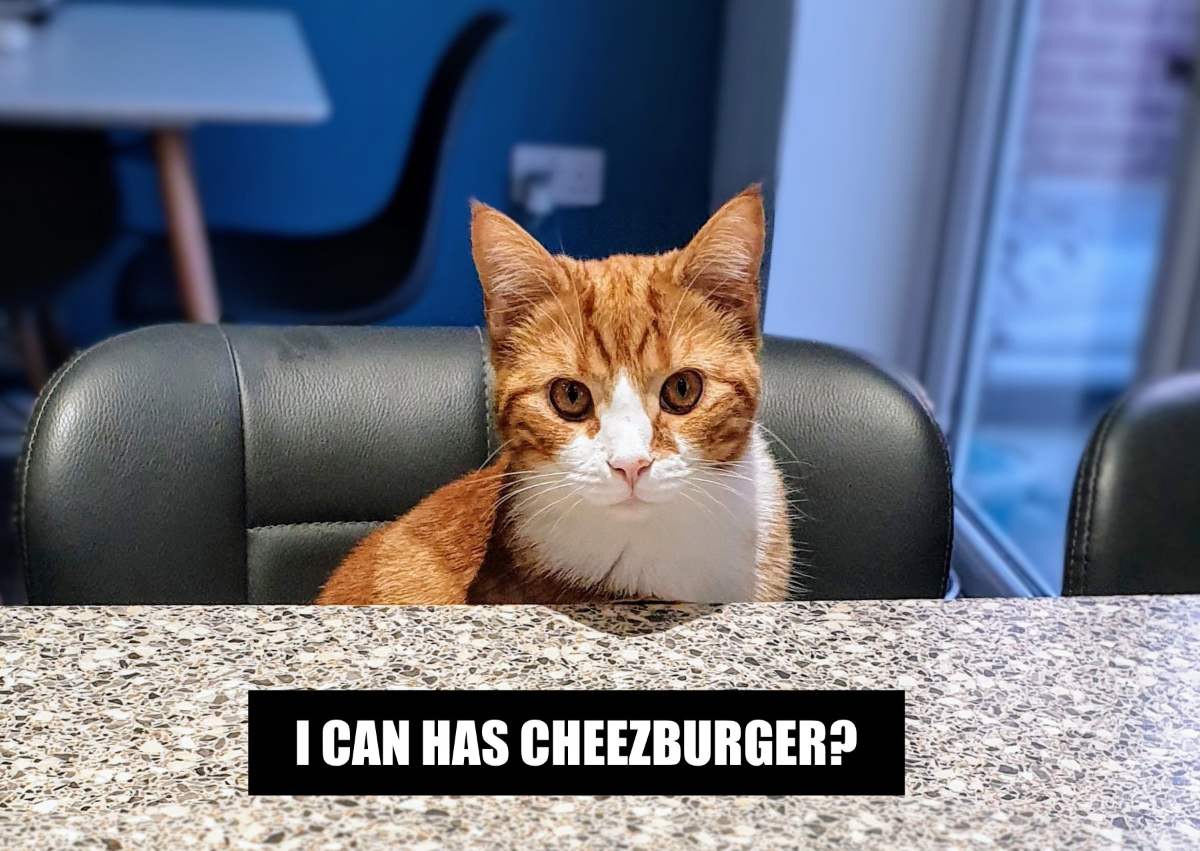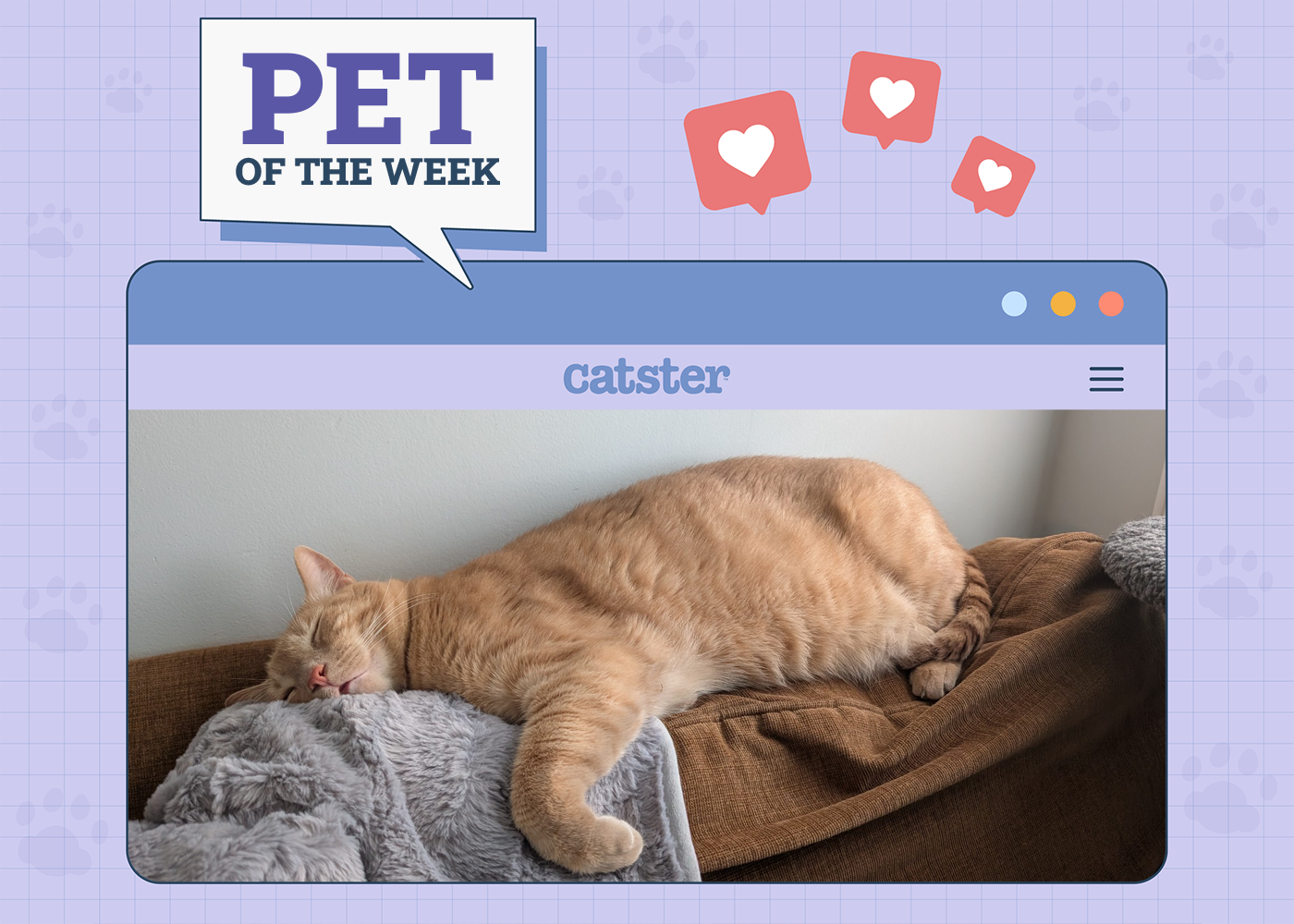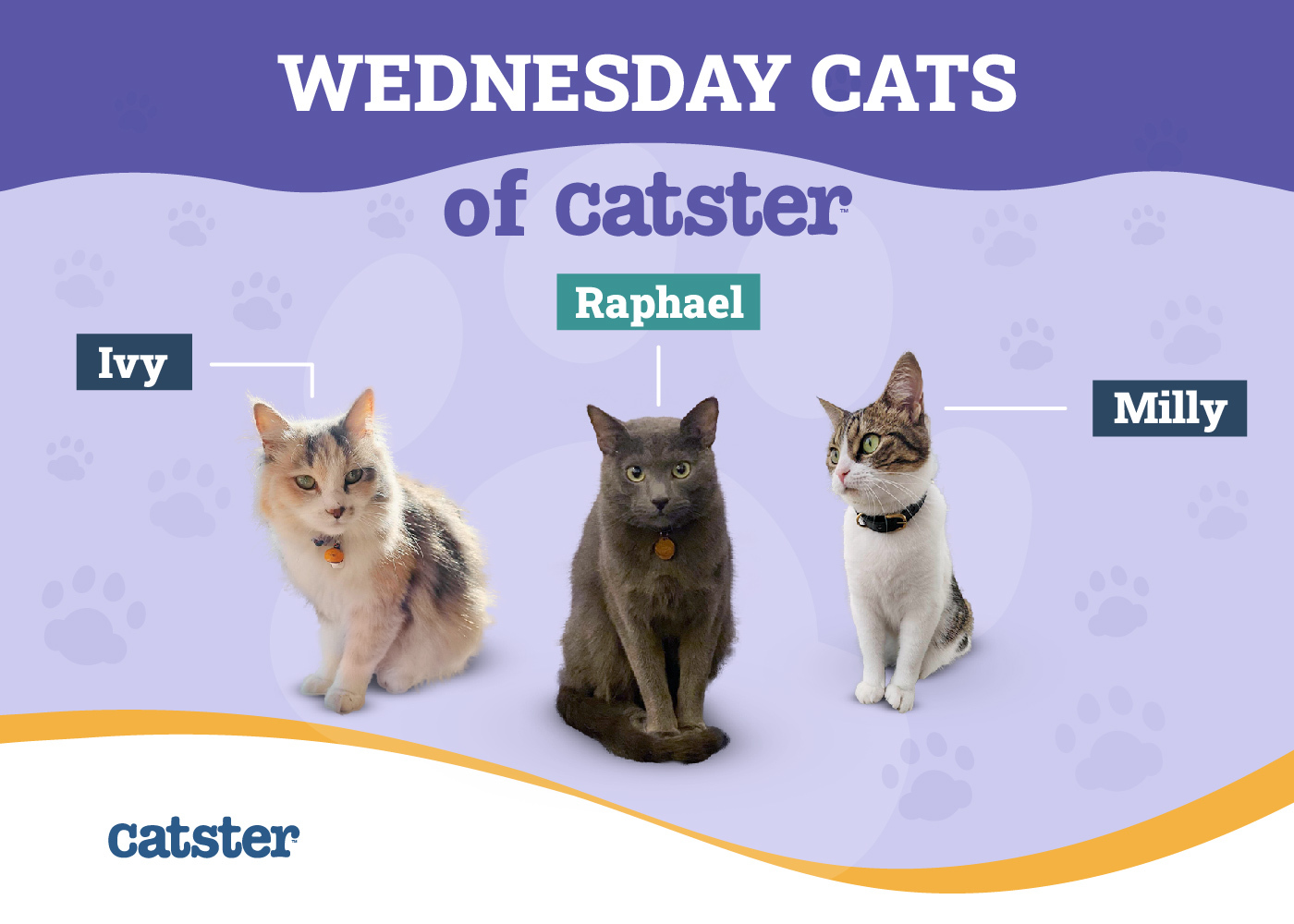Click to Skip Ahead
While cats can develop eye problems just like humans do, their eye conditions should never be treated the same way that we would treat our own. This is especially true when it comes to treatments like human eye drops, as these should never be used on cats without a veterinary prescription. But are there any other home remedies that can be used to treat a cat’s eye problems? What about veterinarian treatments? We have the answers to these questions and more for you right here!

Why You Should Not Use Human Eye Drops On Cats?
Some human eye drops, such as saline solution, lubricating drops, or certain eye medications, may be suitable for use on a cat’s eyes under your vet’s guidance, but unless you have taken your cat for a consultation and received a diagnosis and a treatment plan, you can’t know for sure what’s wrong with your cat’s eyes and how any human product will affect your kitty’s health.
Since there may be ingredients in eye drops that could be harmful, it’s best to stay away from human treatments and focus on ones that are proven to be safe for felines. For example, some human anti-redness eye drops contain decongestants from the imidazolines class, such as tetrahydrozoline. This type of drug is highly toxic to cats and should never be used on them nor should they be near them because of the risk of accidental exposure.1 Neosporin is the brand name of a triple antibiotic eye ointment commonly used in humans that contains bacitracin, neomycin, and polymyxin B. There are reports where cats have suffered from anaphylaxis, a potentially life-threatening allergic reaction, 4 hours after eye application.2
When Do Vets Prescribe Human Eye Drops For Cats?
In certain circumstances, your veterinarian may prescribe human eye drops for your cat if there is no alternative for pets, this can be called extra-label use or off-label use. Only your veterinarian can make a diagnosis and a treatment plan suitable for your cat. Treatment may involve prescribing pet-specific products, over-the-counter pet products, or human products, depending on the condition to be treated and the availability of the drug.
Saline solution or over-the-counter lubricating drops can be used to flush your cat’s eyes and to help them with very minor irritations, but it is essential to double-check the use of these with your vet in case they include an ingredient that could be harmful to kitties. Any eye condition in cats requires prompt veterinary intervention since there is a high chance of serious complications if severe eye problems are left untreated.
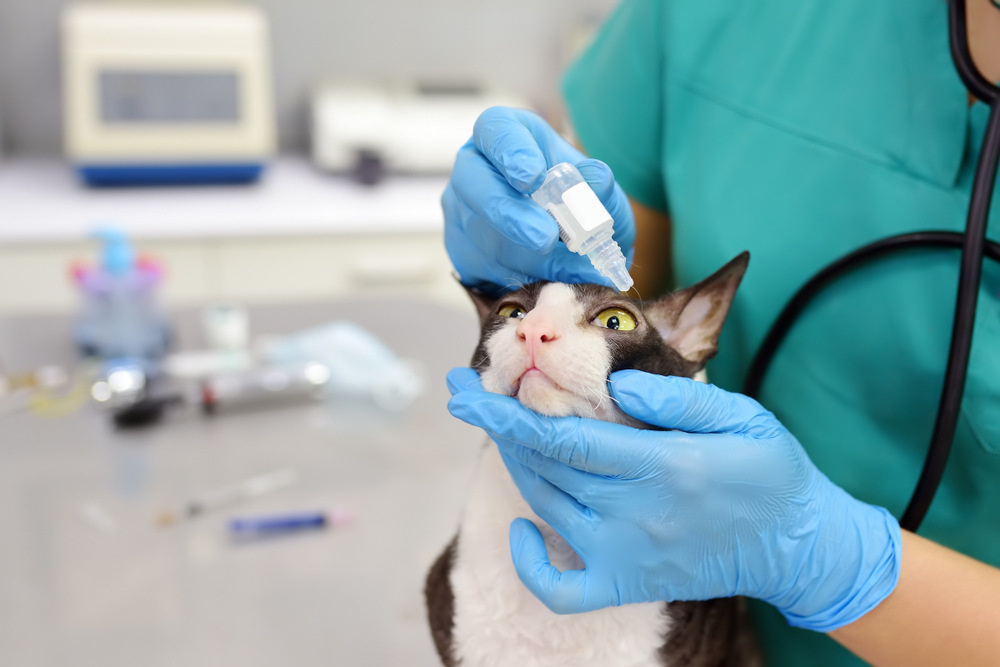

You Can Try Eye Drops for Pets
While human eye drops can’t be used on cats without a veterinary prescription, there are products on the market that are designed just for cats. For example, certain eye washes, such as Vetericyn Plus Antimicrobial Ophthalmic Pet Gel, can flush away debris and can be used to clean discharge around eyes or soothe irritated eyes. Keep in mind that it’s meant as an eye wash, not as an alternative to medicated products that your veterinarian might prescribe. Over-the-counter products are not intended to get rid of an infection or treat any ailment and are generally used to relieve minor signs.

Signs of Eye Infections in Cats
It is crucial to know what signs may develop if your kitty gets an eye infection so you know what to look for and can act quickly if you do notice a problem.
- Watery eyes
- Any type of eye discharge
- Squinting
- Completely closed eye
- Redness
- Change in color
- Eye rubbing
- Swelling of the eye
- Swelling of the conjunctiva
If your cat shows any of the signs mentioned above, you should schedule a checkup with your veterinarian to determine what’s causing your cat’s eye problems and if prescription treatments are necessary. Otherwise, the infection is bound to fester and could cause serious problems, up to and including blindness.
If you have any concerns about your cat’s eyes or their health in general, we recommend you contact your vet directly.
If you need to speak with a vet but can't get to one, head over to PangoVet. It's an online service where you can talk to a vet online and get the advice you need for your pet — all at an affordable price!

Conclusion
Cats can get eye conditions just like humans can. However, it’s important to never use human eye drops on your cat without your veterinarian’s input. For routine eye care, you can use over-the-counter pet-specific eye drops or gels, such as eye washes or lubricating drops, but it’s always best to seek your vet’s approval beforehand. Don’t be misled by the subtle signs of discomfort in your cat; eye problems can progress very quickly, leading to serious consequences and even blindness. It is important to know what signs to look for so you can seek veterinary help as soon as they develop. For any eye problem your cat suffers from, your veterinarian will evaluate them and give you the right solution for your kitty.
See also:
- How to Keep Your Cat’s Eyes Healthy: Vet-Approved Guide
- Can Cats Get Pink Eye? Vet Reviewed Facts & FAQ
Featured Image Credit: Rodica Vasiliev, Shutterstock

